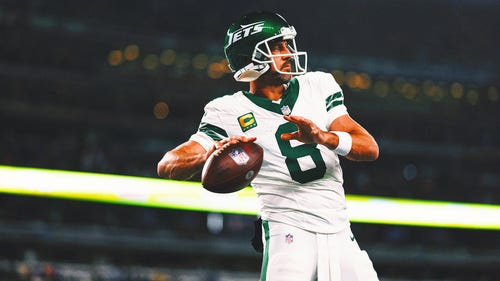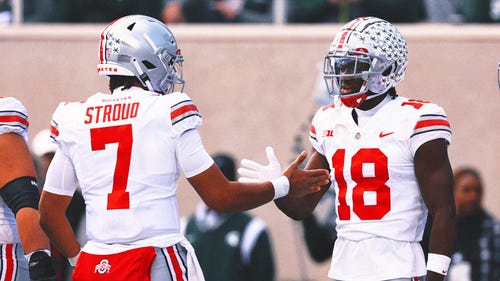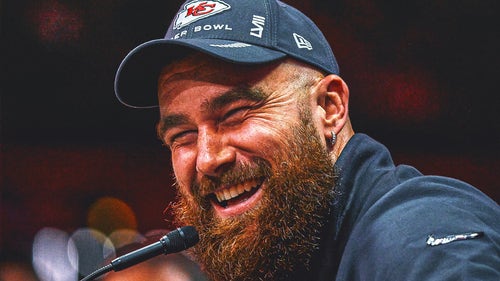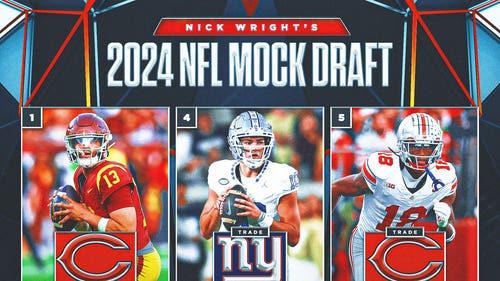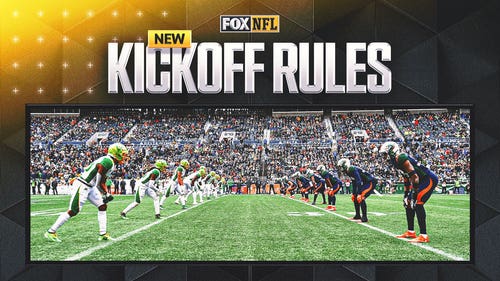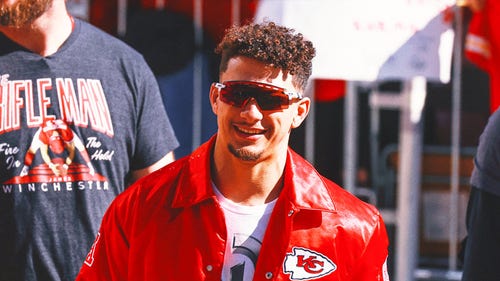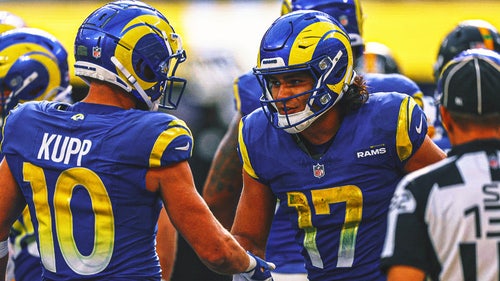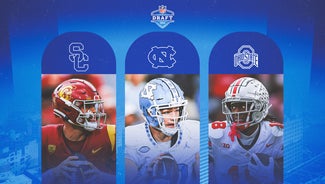
Living a day I never thought would come
The news Saturday morning hit like a body shot: “Al has died.”
Impossible.
And he was only 82.
After all, Davis’ mother, Rose, lived to 103 before she died in 2001. “Yeah, too bad,” he said then when asked about his mother, speaking as if he probably would have selected her in the first round. “I wish we could have kept her around for another couple of years.”
The news of his death has been surreal, because Davis was somewhat obsessed with the concept of dying.
When important NFL figures died, he was quick to provide a stirring, profound commentary — and a stern warning not to bet on his mortality.
If you asked Davis how he was feeling physically, he would invoke Rose. Consider this response in 2008, minutes after Davis wrapped an unforgettable news conference in which he excoriated and fired his handpicked young head coach, Lane Kiffin, using an overhead projector straight out of the 1970s to make his case public.
By then, Davis was using a walker and, at times, a wheelchair, because his mobility was limited. But he couldn’t stand to be viewed that way. Davis had asked the Raiders staff to wheel him behind a podium in the team’s meeting room before the cameras and reporters came in, so we would only see him seated in front of the microphone. Sitting tall.
When he was done dismissing Kiffin, a group of us gathered around with recorders — the best part of an Al Davis news conference was the afterparty. What he would say candidly, about anyone and anything.
Question: “It keeps coming up, so, Al, how is your health?”
Davis looked straight ahead and didn’t duck it.
“Other than the quadriceps and a little trouble with the walking, based on total balance, I’m fine. I’m healthy. You’re going to have to have me around for a while,” he answered.
“I’m fine, really. I take all the tests four times a year. I get a checkup on everything, echo and all those things. All the blood work, I do that four times a year.
“My mother, you know, she lived a long time, 103. I hope nothing happens. Because disease is the one thing, boy, I tell you, it’s tough to lick . . . ”
Davis hesitated. He had seen his beloved wife, Carol, fight back from the brink of death because of a serious heart attack and other ailments. He loved her so much, he moved into her hospital room for a month while she recovered.
In 2007, Davis and John Madden visited San Francisco 49ers legend Bill Walsh two days before he died from leukemia-related complications. When one of his closest rivals finally surrendered to death, Davis gushed about a game-changing man to whom he gave his first professional coaching opportunity.
A year later, telling us about his ailing quad and his mother, Davis had to be thinking about Walsh, who was two years younger than him when he died.
“It’s tough to lick those goddamn diseases,” Davis continued. “I don’t know why they can’t. . . . It bothers me they won’t let us use . . . and it doesn’t mean that I’m Republican or Democrat . . . the stem-cell (therapy). I think it could help.”
When his own legendary players or close friends proved mortal and left this earth, Davis always said the right thing. He very well might have been at the deathbed.
He grieved mightily when Gene Upshaw died in 2008.
Oh, how Davis seethed that his body, which he honed with free weights until he was in his 60s, was betraying him.
Telltale signs
For those of us who covered the team on a daily basis in the past decade, it would be startling the one day he did not show up at the Raiders practice facility in Alameda, Calif. This would be about seven years ago.
We all suspected something was terribly wrong. But it seemed disrespectful to ask why.
So when Davis watched training camp practices in Napa from a golf cart, rather than stand over every practice field and every drill as he’d done in the past, we didn’t stare.
When he began arriving at Raiders team headquarters later in the day — or not at all — we didn’t press for answers.
Davis, I was told, was watching practice film and scouting players on videotape from his room at the Oakland Airport Hilton, where he had set up a comfortable living space that would accommodate his needs. He was 10 minutes from the Raiders facility.
Out of respect, Davis would be left alone. He would have his dignity.
How cruel this is, that one of football’s greatest contributors, its rogue architect and visionary who bullied the NFL into merging with his AFL, an indomitable conqueror who lorded over the game as if it were his personal playground, now will miss the Raiders’ current renaissance.
They’re winning again, they’re explosive and formidable. Perhaps he realized he finally could rest, knowing the Greatness of his Raiders has returned.
Davis desperately wanted one more Super Bowl championship, to bookend his Lombardi Trophies from Super Bowls XI, XV and XVIII. In the past 20 years, he sought that elusive prize through means that were both daring and foolhardy.
Was Davis losing it the past few years when he drafted JaMarcus Russell No. 1 overall and vowed the youngster would be a franchise quarterback? When he traded Randy Moss for next to nothing? When he burned through millions in 2008 signing free agents such as DeAngelo Hall, Javon Walker, Kwame Harris and Gibril Wilson, only to see every one of them bust his team’s will and salary cap?
I do know this: He was trying to win. Even as I dissected and criticized every failure of that 2008 team as an NFL columnist for the San Francisco Chronicle, I could see there was method to that madness.
That’s what Davis was all about. He went all in, on every hand. With every player, every team.
It was all-or-nothing with Jay Schroeder, a rocket-armed passer Davis was convinced would carry his franchise in the late ‘80s. The rest of us saw a mediocre passer who turned out to be a mistake.
Davis feuded with one of his franchise's greatest players, Hall of Fame running back Marcus Allen, who had the temerity to ask for a restructured contract in the late '80s. Davis responded by benching the prolific star and scorer and calling him a cancer on the team. He also parted ways with quarterback Kenny Stabler over a contract dispute.
Then again, Davis rolled sevens on most every other bet he made: Madden, promoted to head coach from assistant at age 32; Bill Parcells, to whom Davis became a lifelong mentor after coaching him in a college all-star game in 1963; Tom Flores; Jon Gruden.
Davis found diamonds in Stabler, a guy who couldn’t throw a pass longer than 30 yards, and Rich Gannon, who led the Raiders to Super Bowl XXXVII after a record-setting 2002 season in which he earned NFL MVP honors.
Davis made blood enemies of so many. Yet he discreetly paid the bills for former players down on their luck, or funded expensive medical treatment for close friends fighting cancer or other life-threatening illnesses.
He paid the mortgages, footed the bills for funerals. If you asked him about this, he would snarl, “None of your business!”
And Davis was a quiet innovator. Today, as the organization mourns his loss, the Oakland Raiders are in the capable hands of CEO Amy Trask, the only female chief executive in the NFL. Davis hired her in 1997 for this role. All he cared about was that she was talented, smart and that she loved the Raiders.
In 1989, Davis made Art Shell the NFL’s first black head coach of the modern era. One decade earlier, after Madden’s retirement, Davis promoted Flores, making him the first Hispanic to be a starting NFL quarterback and a head coach.
Davis did this and he didn’t care what we thought. He thought it was right.
Legacy
How will you remember Al Davis?
For a generation under the age of 30, it’s a mixed bag. Al is the reason you wear silver and black and put a Raiders shield on your back window, or why you pump out AC/DC from the speakers jammed in your car trunk during the pregame ritual of bonding with a distinct social culture known as the Raider Nation. They gather in NFL parking lots all over this country.
The greatness? That’s been largely missing since 2002, the last year Oakland went to the Super Bowl. So that has forced a proud Nation to go on the defensive, to put up its dukes against anyone who would mock an institution that had three Super Bowl titles to its credit and a lineup of player and coaching icons that would rival any in sports.
To so many, Davis and his catchphrases — “Pride and Poise," “Greatness of the Raiders,” “Just Win, Baby!” — had become empty clichés.
Now, we can reflect on what he really meant.
I choose to remember the dashing, brash, sneering Davis, with his too-cool sunglasses, his white satin jacket. He’s wearing those sparkling black patent-leather shoes. He’s on top of the world, arms folded, hair flowing in the autumn wind, standing on the field at the Los Angeles Coliseum or the Oakland-Alameda Coliseum and talking respectful trash to great players on the other team.
I’m remembering an astonishing early morning phone call in 1989. It was from Davis, to my apartment in Denver. The two of us never forgot that call. Hearing his voice startled me so much that I instinctively addressed him as “Mr. Davis.”
Now and then, he would recall that moment. “I had you then, Nancy Gay,” he would say, cackling in delight, always referring to me by first-last name. He absolutely loved that respect I showed him. He had scared me straight.
Four games into the 1989 season, Davis fired Mike Shanahan as head coach and the divorce was bitter. Davis didn’t like Shanahan’s disciplined approach. He fumed that Shanahan punished Davis’ players for leaning on their helmets when they knelt on the practice field.
“He was so insecure when he was here (addressing the team), he made them put a box here so he'd seem taller,” Davis would say of Shanahan.
At that time, I was in my first writing job out of college, covering the Denver Broncos and the NFL for Gannett News Service and USA Today. I had gotten to know Shanahan when he was Dan Reeves’ offensive coordinator my first year on that Broncos beat, in 1987.
After he was fired by Davis, Shanahan called me. “I’m going back to the Broncos,” Shanahan told me, giving a very young writer a very huge scoop. “I’ll be an assistant for Dan (Reeves), but I’m basically working for free. Al still owes me $275,000 from my contract.
“You got that?” Shanahan said. “Write it.
Click.
I put in a call to Davis, asking for a few minutes of his time. No response. So I wrote it, and the headline at the top of the USA Today sports page screamed. “Shanahan — I’m working for free.”
That prompted the phone call. It was 7 a.m. in Denver. The story was on the newsstands.
“Is this Nancy Gay? You’re the one who called me and wrote that goddamned story? OK. Fine. Here’s the deal — you’ve got five minutes with Al Davis!”
I panicked. Then I figured this had to be a joke.
“Awww, c’mon . . . " I blurted back. “Really, who is this?”
The voice on the line boomed at me. “This is AL DAVIS, chairman of the three-time Super Bowl champion Oakland Raiders. And I know all about you . . . you . . . Nancy Gay.”
He spouted facts about where I grew up, where I went to college. He even recited my best high-jump mark in track and field. How did he get this stuff?
Davis, I later learned, was famous for researching and knowing everything about everyone he ever encountered.
The interview was quick. I was in the middle of a question to Mr. Davis when he hung up.
I looked at the clock. It had been exactly five minutes.
That was Al Davis. He was precise.
Asked once to discuss his football strategy, Davis said, "Everybody knows what I want. I want to attack vertically. I want a machine-like team."
That legacy now falls to Trask, to coach Hue Jackson and to Davis’ only child, his son Mark, who inherits the Oakland Raiders.
This succession plan troubled Davis, only because the Raiders were a way of life to him. To Mark Davis, they were his childhood heroes.
“He doesn’t want to get involved in football. He used to know all the players. He still does. They were his vintage — Cliff Branch and all those guys, Fred Biletnikoff, all those guys,” Al said in 2008. “He never understood how I could let someone go. He just doesn’t want to get into that part of it.
“But he will own it someday. That is . . . if they let me go to my maker.”
Mr. Davis, you never ceased to amaze me. You had me convinced this day would never come. But you’re with Lyle Alzado, George Blanda, Gene Upshaw and Jack Faulkner. You’re keeping Pete Rozelle in his place.
You are immortal now, and we are left to view the Greatness in a whole other light.
Nancy Gay covered the Oakland Raiders for the San Francisco Chronicle 2001-09.






































































































































